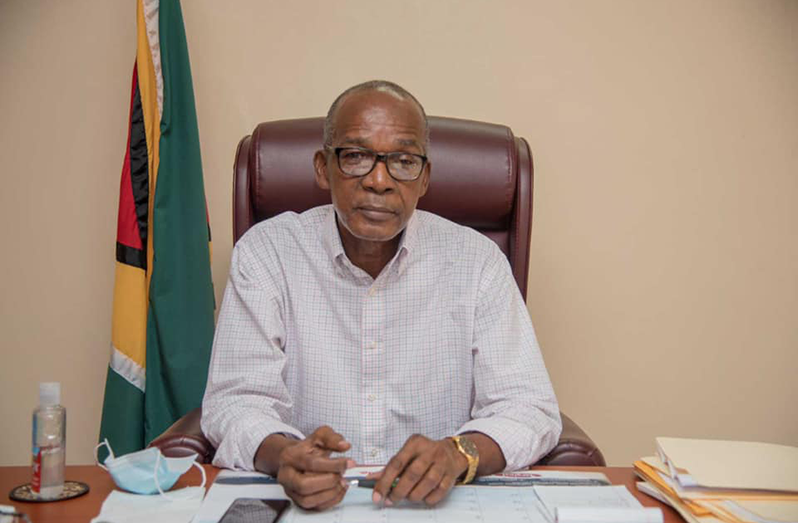IF Guyana is to ensure maximum local- content involvement in the oil-and-gas sector, then there is need for a national plan that speaks to where the skillset of Guyana’s labour force is, and how the country will go about ensuring the available labour matches the job market needs.
Speaking on the topic with the Guyana Chronicle recently, Minister of Labour, Joseph Hamilton, explained that at present, the Guyanese population is not properly informed on what types of skills, and how much of each is needed in either the oil-and-gas or other job sectors in Guyana, and this needs to be changed.
“If in the next five to 10 years the oil-and-gas industry is to be maximally populated by Guyanese, we have to know what we have to get; and we don’t know that at the moment,” Hamilton explained.
“Based on my interactions with all the regions in Guyana, we don’t have a national plan,” he said. “We have a lot of training happening, but it is happening as silos training. Everyone has their silo, and think they are doing well, but there is no cooperation and collaboration; so that is missing.”
Hamilton emphasised that notwithstanding the call to ensure local content in the oil-and-gas sector, enough action is not being put behind the words.
“We can’t just talk about it and say what we desire; desire doesn’t take you where you want to go. We have to have data to guide us, so that we can properly plan. So I am headed to do those things, and have the information that we need in order to plan,” he explained.
To rectify this situation, the Ministry of Labour (MoL), on Monday, launched a multi-stakeholder steering committee, and is preparing to embark on a survey and assessment of Guyana’s workforce to put together a national plan that will guide it on the way forward.
The committee’s first task will be to host a national conference to facilitate consultations with various stakeholders to get a better collaborative understanding of the needs of Guyana’s job market.
“I’ve established this steering committee to plan a conference in this first quarter, where all the technical training schools, and all the people involved in policies and whatever can sit down for two days and share ideas, and plan and strategise, and present a national plan, since we don’t have that at the moment,” Minister Hamilton said.
The minister said the conference will be used for the companies involved in Guyana’s oil-and-gas sector to properly outline their current and projected labour needs as they grow, so that Guyanese can better align themselves to capitalise on these opportunities.
STEERING COMMITTEE
Aside from the MoL, the steering committee includes representatives from the various trade unions, the University of Guyana, the TVET Council, and Guyana Manufacturing and Services Association (GMSA), and the Private Sector Commission (PSC) among other stakeholders.
In addition to the committee, the ministry has begun work on the labour survey, which will focus on gathering in-depth data on Guyana’s labour market, and issues creating a disconnect between the skills available and the skills needed.
The minister explained that the survey will be independent of the Bureau of Statistics (BoS)’s quarterly Labour Force Survey, as it will focus on wider issues.
“We are hoping to launch it very soon; our department which works with the ‘stats’ is working on the questionnaire, and the issues to focus on, and they will consult the ‘Stats Bureau’ on the way forward. We hope to conclude the formal economy assessment by the second quarter, and then do the informal economy that we hope to conclude by the third quarter,” Minister Hamilton said.
He said that in the absence of a national plan, the country’s labour force simply operates in a haphazard manner.
“There is a disconnect, and it is because we don’t know what is needed,” Hamilton said, adding: “We don’t know in five years’ time how many persons for a particular skill set we would need to train. We might be over-training in one skill set, when we are not training at all in another skill set.”
He said there are several stark examples across the country, where the haphazard way in which persons are trained is manifested.
“In Berbice, I engaged the Chambers [Of Commerce] there, and they said they have dozens of tractors and combines laying all over the place; money rotting because they have no mechanic to fix them. The Region has three technical institutes and no mechanics; it must be that we have a problem,” Hamilton said, adding:
“I went to Region One. The manganese company cannot find a heavy-duty operator from Region One to employ; they have to import them from Region 10. It’s happening because there is no coordination and collaboration.”



.jpg)









